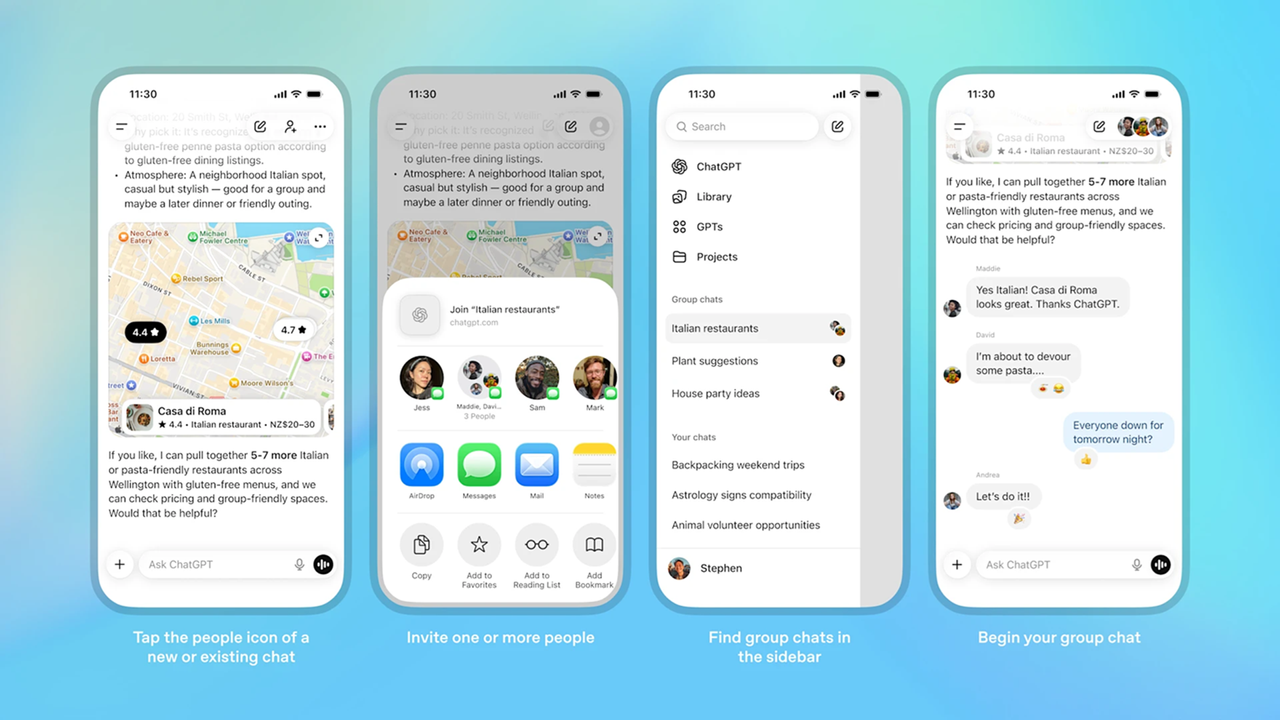
OpenAI Launches Global ChatGPT Group Chat Feature
OpenAI has rolled out a new group chat capability for ChatGPT worldwide, allowing up to twenty participants to collaborate with the AI in the same conversation. The feature, available through the web interface and the ChatGPT app, introduces tools and privacy controls that keep group discussions separate from private chats and prevent personal memory from crossing over. Users can set profile details, tag the AI when needed, and benefit from safeguards for younger users. The AI acts as a neutral assistant, stepping in only when called upon, and supports emojis, images, and personalized responses.










